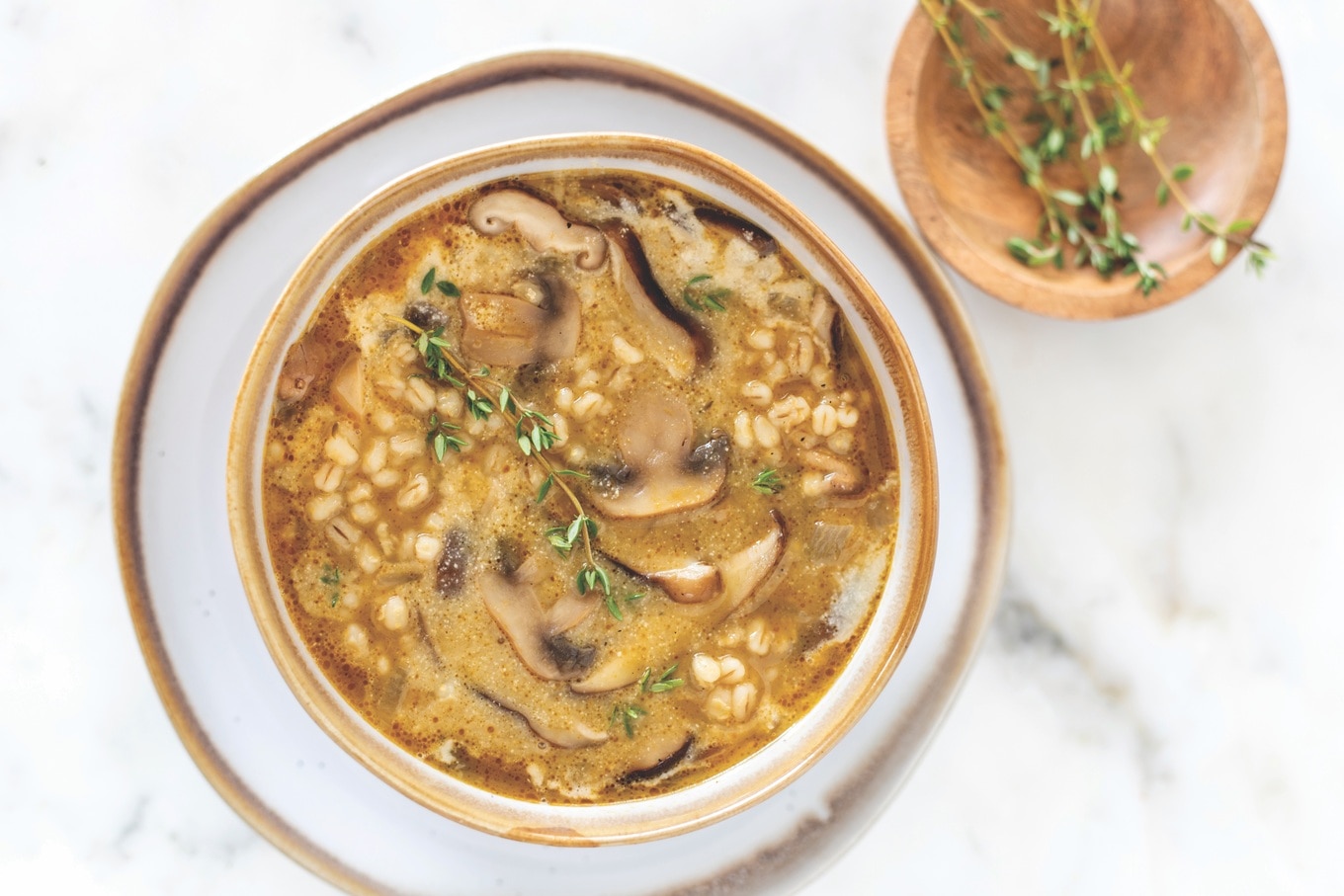Are you looking to shed some extra pounds in a healthy and sustainable way? Look no further than the vegan lifestyle. Embracing a plant-based diet has become an increasingly popular choice for those seeking to improve their health and lose weight. By eliminating animal products and incorporating nutrient-rich fruits, vegetables, grains, and legumes into your diet, you can achieve your weight loss goals while nourishing your body with essential vitamins and minerals. Discover the incredible benefits of adopting a vegan lifestyle for weight loss and embark on a transformative journey towards a healthier, happier you.

Table of Contents
Benefits of a Vegan Lifestyle
Weight Loss
Embarking on a vegan lifestyle can be an excellent strategy for those looking to shed some extra pounds. By eliminating animal products and focusing on plant-based foods, you can easily reduce your calorie intake while still satisfying your nutritional needs. A diet abundant in fruits, vegetables, whole grains, legumes, and nuts can provide you with the necessary nutrients to support your weight loss goals. Moreover, plant-based foods tend to be rich in fiber, which can help you feel fuller for longer and prevent overeating.
Improved Heart Health
following a vegan lifestyle can have significant benefits for your cardiovascular health. By avoiding animal products, which are often high in unhealthy saturated fats and cholesterol, you can significantly reduce your risk of developing heart-related conditions such as high blood pressure, heart disease, and stroke. Plant-based foods are naturally low in fat and can offer a wide range of heart-healthy nutrients such as fiber, antioxidants, and phytochemicals that promote cardiovascular well-being.
Lowered Risk of Chronic Diseases
In addition to improving heart health, adopting a vegan lifestyle can also reduce the risk of other chronic diseases. Numerous studies have shown that a plant-based diet can lower the likelihood of developing conditions such as type 2 diabetes, certain types of cancer, and obesity. This is primarily due to the high intake of fiber, vitamins, minerals, and antioxidants found in plant-based foods, which contribute to overall health and help protect against cellular damage and inflammation in the body.
Elevated Energy Levels
If you often find yourself struggling with low energy levels, incorporating a vegan lifestyle into your routine may be just what you need. Plant-based foods are packed with essential vitamins, minerals, and complex carbohydrates that can provide a steady and sustained release of energy throughout the day. Unlike processed foods and animal products, which often lead to blood sugar spikes and crashes, plant-based meals can keep you feeling energized and focused, allowing you to tackle your daily tasks with ease.
Reduced Inflammation
Inflammation is a common underlying factor in many chronic diseases and can lead to various health issues. By adopting a vegan lifestyle, you can naturally reduce inflammation in your body. Animal products and highly processed foods often contain pro-inflammatory substances, such as saturated fats and advanced glycation end-products (AGEs). On the contrary, plant-based foods are rich in anti-inflammatory compounds, such as antioxidants and phytochemicals, which can help combat inflammation and promote overall well-being.
Key Principles of a Vegan Diet
Plant-Based Foods
At the core of a vegan lifestyle is the emphasis on consuming plant-based foods. This includes fruits, vegetables, whole grains, legumes, nuts, and seeds. These plant-based foods not only form the foundation of a nutritious and balanced diet but also provide essential vitamins, minerals, fiber, and antioxidants that support optimal health.
Elimination of Animal Products
Another key principle of the vegan diet is the complete elimination of animal products. This means avoiding meat, poultry, fish, seafood, eggs, dairy products, and honey. By removing these animal-derived foods from your diet, you are not only reducing your intake of unhealthy fats and cholesterol but also minimizing your contribution to animal exploitation and environmental degradation.
Focus on Whole Foods
Rather than relying on processed vegan alternatives, a vegan diet should primarily focus on whole, unprocessed foods. This means choosing fresh fruits and vegetables, whole grains, and minimally processed plant-based proteins. Whole foods retain their natural nutrient content and are free from additives, preservatives, and artificial ingredients, making them a healthier choice for your body.
Balanced Macronutrients
To ensure that your vegan diet is nutritionally balanced, it is essential to pay attention to macronutrients: carbohydrates, proteins, and fats. While carbohydrates should make up the bulk of your calorie intake, it is important to include adequate amounts of plant-based proteins, such as legumes, tofu, and tempeh, and healthy fats, such as avocados, nuts, and seeds, in your meals.
Adequate Protein Intake
One common concern with a vegan lifestyle is obtaining sufficient protein. However, with proper planning, meeting your protein needs on a vegan diet can be easily achievable. Plant-based protein sources include legumes (such as beans, lentils, and chickpeas), tofu, tempeh, seitan, quinoa, and a variety of nuts and seeds. By incorporating a variety of these protein-rich foods into your diet, you can ensure that you are getting all the essential amino acids your body needs.
Recommended Foods for Weight Loss
Fruits and Vegetables
Fruits and vegetables are the cornerstone of a vegan weight loss diet. These low-calorie and nutrient-dense foods provide a wide range of vitamins, minerals, and antioxidants while keeping your calorie intake in check. Opt for a colorful assortment of fruits and vegetables to ensure you are getting a variety of essential nutrients. Leafy greens, berries, citrus fruits, cruciferous vegetables, and root vegetables are all fantastic choices for weight loss.
Legumes and Pulses
Legumes, including beans, lentils, and chickpeas, are excellent sources of plant-based protein and fiber. These versatile foods can be added to soups, stews, salads, or even used to make delicious veggie burgers. Legumes provide a feeling of fullness and can effectively contribute to weight loss while providing valuable nutrients like iron and folate.
Whole Grains
Whole grains, such as quinoa, brown rice, whole wheat, oats, and barley, should be a staple in a vegan weight loss diet. These grains are rich in fiber, which aids in digestion and helps keep you satiated for longer periods. Additionally, whole grains provide complex carbohydrates, which are slowly digested, providing sustained energy and preventing blood sugar spikes.
Nuts and Seeds
Despite being high in calories, nuts and seeds can actually promote weight loss when consumed in moderation. They are packed with heart-healthy fats, protein, and fiber, which can help control hunger levels and prevent overeating. Almonds, walnuts, chia seeds, flaxseeds, and pumpkin seeds are all excellent choices. Remember to watch portion sizes, as these calorie-dense foods can add up quickly.
Plant-Based Proteins
To ensure you are meeting your protein needs while on a vegan weight loss journey, incorporate various plant-based proteins into your meals. Tofu, tempeh, seitan, and plant-based protein powders are all great options. These protein sources can be used in stir-fries, salads, sandwiches, or blended into smoothies for a satisfying and nutritious meal.
Meal Planning and Prep
Creating Balanced Meals
Meal planning is essential when following a vegan lifestyle for weight loss. Aim to create balanced meals that include a variety of plant-based foods, ensuring you are getting an array of nutrients. Build your plate with a mix of vegetables, whole grains, legumes or plant-based proteins, and healthy fats. Experiment with different flavor profiles, herbs, and spices to keep your meals exciting and satisfying.
Batch Cooking
Batch cooking is a time-saving technique that can make sticking to a vegan weight loss diet much easier. Set aside a designated day each week to prepare large batches of meals and snacks that can be portioned and stored for later use. By having nutritious and delicious meals readily available in your fridge or freezer, you can avoid relying on unhealthy takeout or convenience foods on busy days.
Meal Prepping Tips
To streamline your meal prepping experience, consider investing in quality food storage containers. Glass containers are a sustainable and safe option, as they are free from harmful chemicals and can be easily reheated. Plan your meals for the week, making a shopping list of all the ingredients you will need. Pre-wash and chop fruits and vegetables, cook whole grains and legumes, and store each component separately for quick and efficient meal assembly throughout the week.
Portion Control
Although a vegan diet can be incredibly nutritious, portion control is still crucial for weight management. Filling your plate with wholesome plant-based foods is essential, but be mindful of your overall calorie intake. While many plant-based foods are lower in calories compared to animal products, it is still possible to consume excess calories if portion sizes are not monitored. Use measuring cups or a food scale to help you accurately portion your meals and prevent overeating.
Smart Snacking Strategies
Snacking is an integral part of many people’s daily routine. To stay on track with your weight loss goals, choose smart snacks that are nutrient-dense and satisfying. Fresh fruits, raw vegetables with hummus or nut butter, homemade energy balls, and roasted chickpeas are all excellent options. Keep healthy snacks readily available, both at home and at work, to prevent reaching for unhealthy options when hunger strikes.

Boosting Metabolism on a Vegan Diet
Regular Exercise
While diet plays a significant role in weight loss, regular physical activity is equally important. Engaging in regular exercise can rev up your metabolism, helping you burn more calories throughout the day. Aim for at least 150 minutes of moderate-intensity aerobic activity, such as brisk walking or cycling, or 75 minutes of vigorous aerobic activity, such as running or swimming, each week.
Strength Training
Incorporating strength training exercises into your fitness routine can help increase muscle mass, which can boost your metabolism even at rest. Consider bodyweight exercises, resistance bands, or free weights to target different muscle groups. Aim to include strength training at least two days a week, allowing your muscles to recover in between sessions.
Cardiovascular Activities
Cardiovascular activities, such as jogging, cycling, or dancing, are excellent for promoting weight loss and cardiovascular health. These activities increase your heart rate and calorie burn, helping you shed unwanted pounds while improving endurance and fitness levels. Find activities that you enjoy and make them a regular part of your routine.
High-Intensity Interval Training (HIIT)
If you’re looking to maximize calorie burn and boost your metabolism, incorporating high-intensity interval training (HIIT) into your workouts can be highly effective. HIIT involves short bursts of intense exercise followed by brief recovery periods. This type of training can help increase your metabolic rate and improve cardiovascular fitness in a shorter amount of time compared to steady-state cardio exercises.
Incorporating Weight-Bearing Exercises
Weight-bearing exercises, such as walking, jogging, or weightlifting, can help maintain bone density and preserve muscle mass. As you age, maintaining strong bones and muscles becomes increasingly important. Include weight-bearing exercises in your fitness routine to support overall health and prevent bone loss.
Tips for Effective Weight Loss
Stay Hydrated
Proper hydration is crucial for overall health and weight loss. Drinking an adequate amount of water throughout the day can help boost your metabolism, curb hunger, and support digestion. Aim to drink at least eight glasses of water per day, or more if you are physically active or live in a hot climate.
Listen to Your Body
It is essential to listen to your body’s hunger and fullness cues when following a vegan weight loss diet. Pay attention to your body’s signals and eat when you are genuinely hungry, stopping when you feel comfortably satisfied. Eating mindfully and savoring each bite can help you better recognize these cues and prevent overeating.
Practice Mindful Eating
Mindful eating is a practice that encourages you to be fully present and engaged with your food. By slowing down, savoring the flavors, and paying attention to your body’s response, you can develop a healthier relationship with food and prevent mindless eating. Avoid distractions, such as screens or multitasking, while eating, and focus on the sensory experience of your meal.
Get Sufficient Sleep
Adequate sleep is essential for weight loss and overall well-being. When you don’t get enough sleep, your body’s hunger hormones can become imbalanced, leading to increased cravings and a slower metabolism. Aim for seven to nine hours of uninterrupted sleep each night to support your weight loss efforts.
Manage Stress Levels
Stress has been linked to weight gain and difficulty losing weight. When you are stressed, your body releases cortisol, a hormone that can increase appetite and encourage the storage of belly fat. Find healthy ways to manage stress, such as practicing meditation, deep breathing exercises, yoga, or engaging in hobbies that bring you joy.
Dealing with Nutrient Deficiencies
Monitoring Vitamin B12
Vitamin B12 is primarily found in animal-based foods, making it important for vegans to monitor their intake. A B12 deficiency can lead to fatigue, weakness, and neurological problems. To ensure adequate levels, consider taking a B12 supplement or consuming fortified plant-based foods, such as nutritional yeast or plant-based milk alternatives.
Ensuring Calcium Intake
Calcium, essential for strong bones and teeth, is commonly associated with dairy products. However, there are plenty of plant-based sources of calcium available to vegans. Include foods like leafy greens (spinach, kale, collard greens), fortified plant-based milks, tofu, and almonds in your diet to meet your calcium needs. Calcium supplements can also be considered if necessary.
Addressing Iron Levels
Iron is vital for carrying oxygen throughout the body and preventing iron-deficiency anemia. Plant-based sources of iron include legumes, tofu, tempeh, quinoa, fortified cereals, and dark leafy greens. Pairing iron-rich foods with sources of vitamin C, such as citrus fruits or bell peppers, can enhance iron absorption. Regularly monitor your iron levels through blood tests and consult with a healthcare professional if you have concerns.
Meeting Omega-3 Fatty Acid Needs
Omega-3 fatty acids are beneficial for heart health, brain function, and reducing inflammation. While fish is a common source of omega-3s, there are vegan-friendly options available. Incorporate foods such as chia seeds, flaxseeds, walnuts, and hemp seeds into your diet to ensure an adequate intake of omega-3 fatty acids. Plant-based algae oil supplements can also provide a direct source of EPA and DHA omega-3s if desired.
Supplementing if Necessary
Depending on individual needs and dietary choices, vegans may benefit from additional supplementation. It is advised to consult with a healthcare professional or registered dietitian to assess your nutritional status and determine if any specific supplements are needed to support optimal health. Supplementing with vitamins such as vitamin D or iodine may be necessary, especially for those who have limited sun exposure or avoid iodized salt.
Eating Out and Social Situations
Researching Restaurant Options
Eating out as a vegan can be an enjoyable experience with a little planning. Before heading out, research restaurants in your area that offer vegan-friendly options. Many establishments now have dedicated vegan menus or clearly highlight vegan options on their regular menus. Online platforms and mobile apps can also help you locate vegan-friendly restaurants or find vegan-friendly dishes at non-vegan establishments.
Communicating Your Dietary Choice
When dining out with friends, family, or colleagues, it’s helpful to communicate your dietary choice in advance. Informing your companions about your vegan lifestyle ensures that everyone is aware of your dietary needs and can choose a restaurant that accommodates your preferences. When communicating your choice, be friendly and open, inviting others to ask questions and fostering a positive dialogue about veganism.
Adapting to Social Events
Navigating social events and gatherings as a vegan can sometimes be challenging, especially if the menu primarily consists of non-vegan options. However, there are several strategies you can employ to adapt and ensure you have suitable choices available. Consider eating a light meal or snack before the event, so you aren’t overly hungry. Additionally, reach out to the host or organizer and offer to bring a vegan dish to share with others. This way, you can ensure there is at least one vegan option available.
Bringing Vegan Dishes to Gatherings
Bringing vegan dishes to social gatherings can introduce others to delicious plant-based meals and showcase the variety of foods available on a vegan diet. Prepare flavorful and well-presented dishes that are sure to impress both vegans and non-vegans alike. Consider making vegan versions of classic dishes or introducing unique plant-based creations to expand everyone’s culinary horizons.
Finding Supportive Communities
Building a network of supportive individuals who understand and appreciate your vegan lifestyle is crucial for long-term success. Seek out local vegan groups, join online communities, or attend vegan events and meetups to connect with like-minded individuals. Sharing experiences, asking for advice, and celebrating milestones together can make the transition to a vegan lifestyle easier and more enjoyable.
Long-Term Sustainability
Finding Vegan-friendly Restaurants
While it might seem challenging at first, finding vegan-friendly restaurants becomes easier with time. More establishments are catering to the growing demand for plant-based options. Use online resources, such as vegan restaurant guides and review websites, to locate vegan-friendly eateries in your area. Over time, you will create a list of go-to restaurants that you know will provide delicious and satisfying vegan meals.
Learning New Recipes
To keep your vegan lifestyle exciting and sustainable, try learning new recipes and experimenting with different flavors and cuisines. Cookbooks, online recipe websites, and cooking classes can provide inspiration for creating delicious plant-based meals. Engage in culinary adventures, invite friends over for vegan dinner parties, and enjoy the process of discovering new tastes and textures.
Expanding Food Preferences
One of the benefits of a vegan lifestyle is the opportunity to explore a wide variety of plant-based foods. Take advantage of this by gradually introducing new fruits, vegetables, grains, and plant-based protein sources into your diet. Embrace the diversity of plant-based ingredients, and you may find that your food preferences expand beyond what you ever expected.
Seeking Professional Advice
If you are unsure about meeting your nutritional needs or hitting your weight loss goals on a vegan diet, seeking guidance from a registered dietitian who specializes in plant-based nutrition can be highly beneficial. These professionals can provide personalized advice, meal planning assistance, and address any concerns or questions you may have. They can also help ensure that you are receiving all the essential nutrients your body needs to thrive.
Educating Others on Veganism
As you experience the benefits of a vegan lifestyle firsthand, you may feel inspired to share your knowledge and educate others about veganism. Whether through conversations, social media, or participating in local events, educating others about the positive impacts of a vegan lifestyle can help break down misconceptions and create a more vegan-friendly world.
Conclusion
Embarking on a vegan lifestyle can offer numerous benefits, including weight loss, improved heart health, lowered risk of chronic diseases, elevated energy levels, and reduced inflammation. By focusing on plant-based foods, eliminating animal products, consuming whole foods, balancing macronutrients, and ensuring adequate protein intake, you can successfully achieve your weight loss goals while maintaining optimal health. Incorporating recommended foods for weight loss, planning and prepping meals, boosting metabolism through exercise, implementing effective weight loss strategies, addressing nutrient deficiencies, navigating social situations, and embracing long-term sustainability are vital components of a successful vegan lifestyle. Remember to seek professional advice when needed, expand your culinary repertoire, and share your newfound knowledge to support others on their vegan journey. By embracing a vegan lifestyle, you not only improve your own well-being but also contribute to the well-being of the planet and the welfare of animals.






